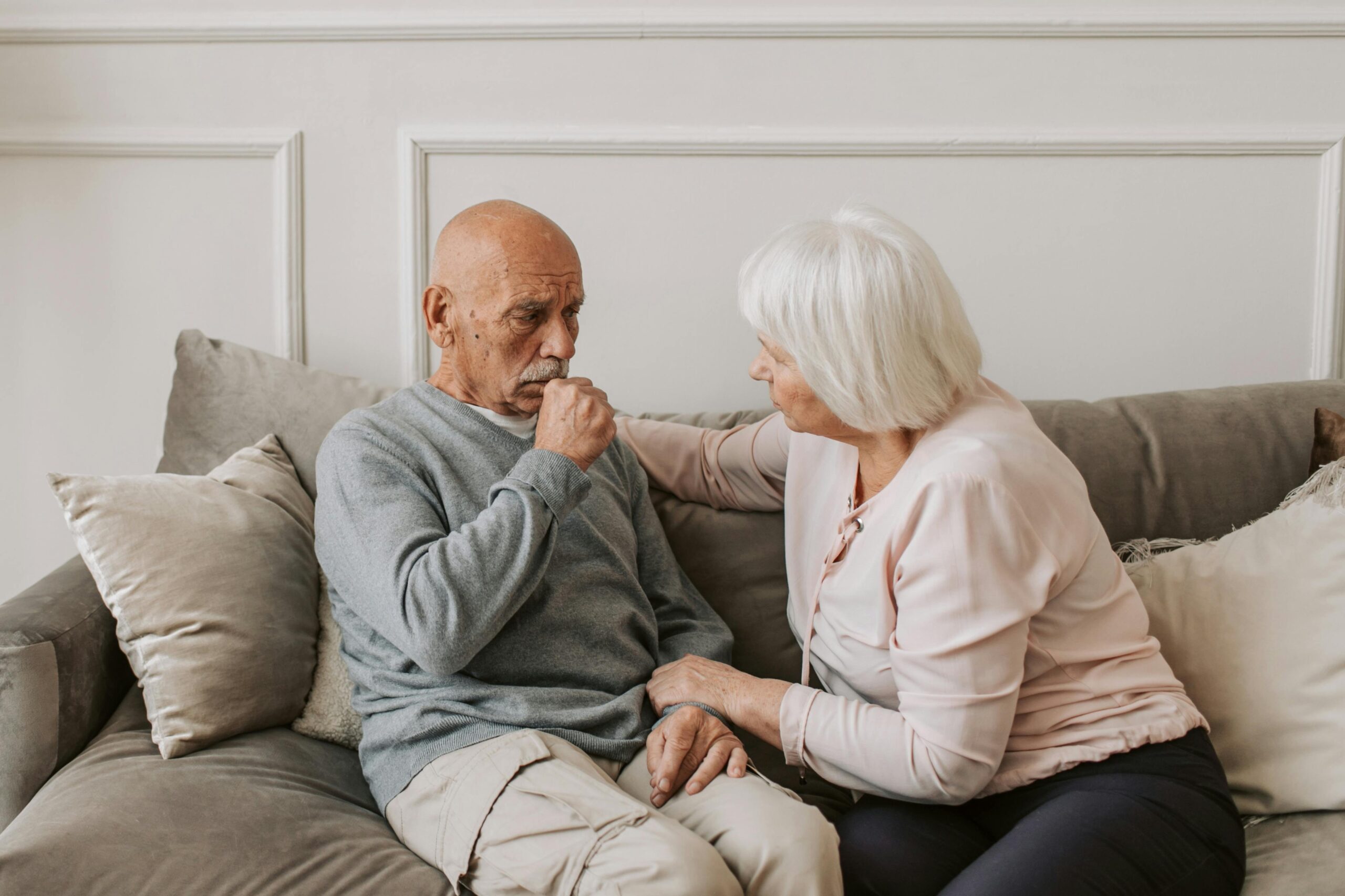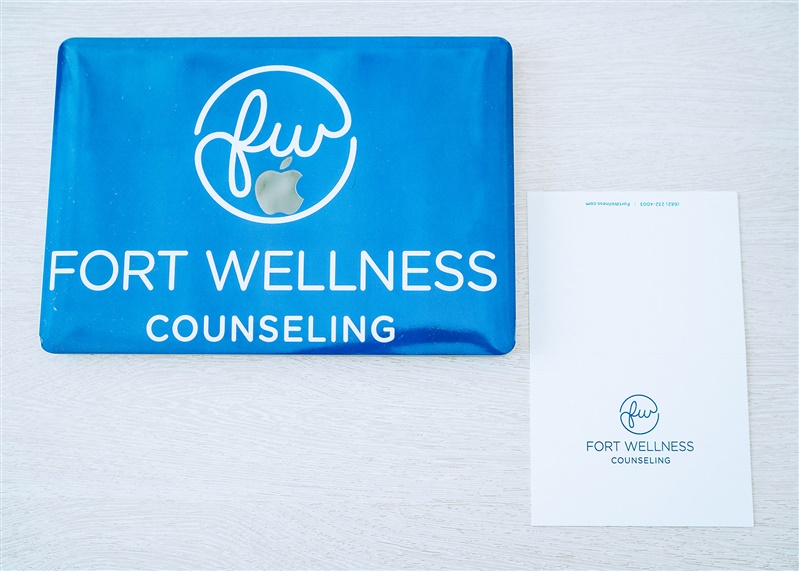
Offering Support After the Texas Hill Country Flooding
Offering Support After the Texas Hill Country Flooding By: Rane Wallace, MS, LPC, LCDC, SAP When tragedy strikes, it comes out of nowhere. And it

Attending therapy with Fort Worth Therapists can help you improve your habits and build healthier routines. Did you know that building routines and habits are especially important when it comes to improving your mental health? It’s true. In this article, I’m going to discuss why routines are important to your mental health and emotional well-being. I’m also going to discuss some healthy habits and some creative ways for you to track your progress. Lastly, I’m going to give you a tool that you can use when setting goals.
Our brain responds to things we do on a consistent basis much more than to those that we do occasionally. This applies to all areas of our lives, and especially our mental health. Your mental health is closely connected to the routines and habits you implement in your daily life.
Healthy habits and routines have a positive impact on your emotional well-being. Good habits can lead to improved mental health and positive changes in the brain that can lead to cumulative gains (Bernacer, Lombo, & Murillo, 2015). Exercising, for example, is not just good for your body, but also for your brain and your emotional well-being.
But what are some habits that are especially good for your mental health? Below, I have outlined 4 different habits that might be helpful for you to start doing to improve your mental health.
Feeling and expressing gratitude is good for your emotional well-being. It helps you to focus on the positive aspects of your life. It can also strengthen your relationships with other people. Gratitude is an essential element for your happiness and well-being (Sansone & Sansone, 2010).
Gratitude can help you feel happier and less depressed because it centers your attention on everything that is good and worthy of thankfulness, rather than on those things that need improvement or are seen as flaws. Over time, practicing gratitude helps you see the good and feel more satisfied with your life. In addition to improving symptoms of depression, Gratitude can also help improve symptoms of anxiety. Next, I’ll talk about ways that you an practice gratitude.
You can practice gratitude in a couple of different ways. First, keep a gratitude journal and write down what you are grateful for. Secondly, make a point of showing your gratitude to other people. You can do so by sending them cards and letters. You can also show your appreciation verbally with words and also with gifts. By practicing gratitude, it will change the way you feel and improve your emotional well-being.
There is a lot of research that shows meditating is beneficial. The more you practice meditation, the more you will benefit. It’s a good idea to incorporate meditation into your daily life. Even if it just for a few minutes (Goldstein et al., 2020). You can pick any meditation practice that works for you. For example, mindfulness meditation has been especially well-studied and has shown great results (Goldstein et al., 2020). Next, we will talk about some strategies for how you can practice meditating.
First thing to know about meditation is this: there is no right or wrong way to meditate. You just need to find a way that is right for you. Try to focus on something specific, or on absolutely nothing at all. You can still benefit even if your mind wanders, and you struggle staying focused. Meditation can be practiced with the help of an app. You can do it during your commute or in any other time that is convenient for you.
Meditation helps you to see improvements in your happiness and mental health. Just remember, meditation is like a muscle that requires practice. Do it for several days and just try to get 1% better at it each day. Don’t expect to be a pro after your first session.
Writing about your feelings, both positive and negative, can also have a positive impact on your mental health (Smyth et al., 2018). Journaling helps you gain a better perspective on your experiences. It also helps you express your emotions in a healthy way. Journaling can also help you to discover new things about yourself and improve your self-awareness.
Journaling is easy to implement and accessible for anyone. It is a practice that only takes a short period of time. Journaling helps you reflect on everything that happened in your day. This will help ground you and improve your emotional awareness.
Being outdoors and surrounded by green spaces is a great way to reduce your stress and improve your well-being. You can do it even if you are in the heart of a big city. Natural spaces can help reduce the levels of cortisol in your body – a physical marker of how much stress you are experiencing (Hunter, Gillespie, & Chen, 2019). Fort Worth and the surrounding area has a lot of areas for you to do this. If you haven’t already, check out the Fort Worth Nature Center.
Exposure to nature is especially important for people who live in urban environments. Having plants around and going outdoors for lunch or for a walk can make a big difference in how well you feel during the day. Surely you have 10 or 15 minutes in your day where you can go outside. Make it happen. Buy a small plant and keep care of it. I have a few in my office and they are in the picture at the top of the article.
One particular tip to improve your mental health and well-being is by building a stronger morning routine. A routine involves a set of habits that contribute to your happiness and that become easier to implement because they follow each other and connect in a way to maximize well- being. A routine makes each individual habit easier to follow. Some people refer to this as habit stacking because you stack one habit on top of another.
Why make it a morning routine? There are several reasons. First, morning routines are easier to follow. You have the energy to do it and you are less likely to be interrupted by other people, like roommates or your partner. The morning can provide a peaceful space that belongs to you and that is not tied to other commitments.
Morning routine help you start the day off right. It gives you an advantage because you get the right mindset and helps you to feel a sense of accomplishment. Imagine if you started all of your days off feeling accomplished. What else would you accomplish throughout your day because you started off on such a good fit. Morning routines help you take care of yourself. They also allow you to face the day with energy and positivity (Eversion Wellness, 2015).
You can make your own morning routine by incorporating the habits that work for you. You might start with a meditation, some exercise, breakfast, reading, journaling, or any other habits that you enjoy and that helps you to feel better. A good tip is to combine different habits that stimulate your mind, your body, and your spiritual self. This will help the routine to feel more comprehensive and get you energized in various ways.
A short meditation with some journaling, a little exercise, and a nice cup of tea can make a strong combination. The idea is that you create a routine that works for you and that sustains your well-being. If you want to learn more about building good habits by reading Atomic Habits by James Clear. You might be telling yourself that you don’t have time for that or that there isn’t enough time in the day. Not having time is just another way of saying that it isn’t a big enough priority for you. Where there is a will, there is a way.
Another important aspect of morning routines is to make them sustainable. Make it something you can do on a consistent basis and not too hard. Complicated and difficult patterns set you up for failure. It’s better to start with a single habit and go from there than plan to implement five things and give up after a couple of days. Make sure your goals are realistic and easily attainable.
A morning routine should not be an unpleasant obligation but a way of taking care of your mental and emotional well-being. It should involve things that are good for you. It should also involve things that help you feel good. Some habits that are generally positive might not work for you, and that’s OK. Find what works for you. Play to your strengths.
The way to implement your morning routine is to make it a habit. Repeat it every day with consistency to get the best results and make sure to follow through. If you must stop it once, that’s fine, but try to retake it the next day. Missing something twice in a row can make you less likely to take it up again. Focus more on the lifestyle that you are hoping to achieve.
A morning routine is so much easier to implement if you are getting the right amount of sleep. If you have a hard time waking up in the morning, it could be a sign of sleep deprivation. Try to go to bed early so you can rise earlier. Accomplishing your goals and having good habits is difficult when you are feeling exhausted. Set yourself up to succeed. Don’t forget that sleep is one of the basic foundational elements of a good health.
A morning routine can become an effective way of making your life better and supporting your mental health. It’s a good tool to build in several good habits into your day. You get to develop your routine however you want to maximize your happiness and improve your quality of life.
Therapists in Fort Worth help hold you accountable and get support from a trained professional. You can also use something to hold yourself accountable and track your results objectively. Use a calendar and circle the days you do it or give yourself a check mark. Put the calendar on your fridge or in a place that you see multiple times per day. You can also do things to make sure your goals get done. For instance, by placing your workout clothes out the night before you go to bed, you are more likely to get the ball rolling and to make it happen when you wake up in the morning. Or by placing your gratitude journal on your night stand or by the coffee maker.
When it comes to making goals in counseling, I’d encourage you to make them SMART. And by SMART goals, what I mean is making goals that are: Specific, Measurable, Achievable, Relevant and Timely. Here’s some more information on SMART goals:
Wrapping it all together, a good goal would be that I’m going to work out 3 times per week times 30 minutes per day until April 1st, 2022. Or I’m going to lose 5 pounds and weigh X pounds by April 1st, 2022. By making SMART goals, you can be more objective and hold yourself accountable. This will help you thrive and live your best life.
Did you know that you don’t have to have some emergent issue or extremely pressing problem to attend therapy? By attending therapy with a therapist in Fort Worth, you can have a way to hold yourself accountable and get some professional support in achieving your goals. Especially when you are not motivated to do it. Therapy can be beneficial and help you gain motivation and achieve the results that you are looking for. Don’t forget. You deserve to thrive.
If you liked this article, you might find some of these other blog articles useful:
Bernacer J, Lombo JA and Murillo JI (2015) Editorial: Habits: plasticity, learning and freedom. Front. Hum. Neurosci. 9:468. https://psycnet.apa.org/record/2015-43263-001
Eversion Wellness. (2015). Rise and Shine: Why Morning Routines Matter and How to Get One. Retrieved from https://www.envisionwellness.co/why-morning-routines-matter/
Goldstein, E., Topitzes, J., Brown, R. L., & Barrett, B. (2020). Mediational pathways of meditation and exercise on mental health and perceived stress: A randomized controlled trial. Journal of Health Psychology, 25(12), 1816–1830. https://doi.org/10.1177/1359105318772608
Hunter MR, Gillespie BW and Chen SY-P (2019) Urban Nature Experiences Reduce Stress in the Context of Daily Life Based on Salivary Biomarkers. Front. Psychol. 10:722. https://www.frontiersin.org/articles/10.3389/fpsyg.2019.00722/full
Sansone, R. A., & Sansone, L. A. (2010). Gratitude and well-being: the benefits of appreciation. Psychiatry (Edgmont (Pa. : Township)), 7(11), 18–22.
Smyth, J. M., Johnson, J. A., Auer, B. J., Lehman, E., Talamo, G., & Sciamanna, C. N. (2018). Online Positive Affect Journaling in the Improvement of Mental Distress and Well-Being in General Medical Patients With Elevated Anxiety Symptoms: A Preliminary Randomized Controlled Trial. JMIR mental health, 5(4), e11290. https://doi.org/10.2196/11290

Offering Support After the Texas Hill Country Flooding By: Rane Wallace, MS, LPC, LCDC, SAP When tragedy strikes, it comes out of nowhere. And it

Family Vacations & Your Mental Peace: Strategies for Stress-Free Summer Travel By: Rane Wallace, MS, LPC, LCDC, SAP Of course, traveling with your family is

Mental Health 101: Debunking Common Myths By: Rane Wallace, MS, LPC, LCDC, SAP Every May, Mental Health Awareness Month raises awareness and advocacy for people

Medical Trauma: Understanding and Healing from Difficult Healthcare Experiences By: Rane Wallace, MS, LPC, LCDC, SAP Over the years, I’ve come to understand that for

Social Media Depression: Beyond FOMO to Algorithm-Induced Mood Change By: Rane Wallace, MS, LPC, LCDC, SAP I’ve seen this happen so many times with patients,

How to Wind Down at Night: Simple Sleep Hygiene Tips By: Rane Wallace, MS, LPC, LCDC, SAP Sleep hygiene might sound like a fancy term,

Pregnancy and Postpartum Anxiety Treatment in Fort Worth By: Rane Wallace, MS, LPC, LCDC, SAP Have you or a loved one experienced anxiety during pregnancy

Breaking the ‘New Year, New Me’ Mindset: A Guide to Sustainable Change By: Rane Wallace, MS, LPC, LCDC, SAP In my years as a therapist,

How to Support a Partner with Chronic Illness: A Mental Health Perspective By: Rane Wallace, MS, LPC, LCDC, SAP Living with a chronic illness can

EMDR for Attachment Issues: Building Healthy Relationships By: Rane Wallace, MS, LPC, LCDC, SAP When you hear “EMDR therapy” (Eye Movement Desensitization and Reprocessing), you

How to Deal with a Narcissistic Partner By: Rane Wallace, MS, LPC, LCDC, SAP Do you ever feel like your partner thinks they’re better than

How to Recover from Burnout By: Rane Wallace, MS, LPC, LCDC, SAP Burnout is a common struggle in today’s fast-paced world. Life’s relentless demands can

The Benefits of Attending Couples Counseling By: Rane Wallace, MS, LPC, LCDC, SAP There’s a misconception about couples counseling – that it signals the end

Things to Know About Individual Counseling in Fort Worth, TX By: Rane Wallace, MS, LPC, LCDC, SAP May is Mental Health Awareness Month, a good

Everything You Need to Know About EMDR Therapy By: Rane Wallace, MS, LPC, LCDC, SAP Have you heard about EMDR therapy and want to learn

What is Nature Therapy? (And Why You Should Be Doing It!) By: Rane Wallace, MS, LPC, LCDC, SAP Let’s face it: there’s just something about

The Benefits of Virtual Therapy in Texas By: Rane Wallace, MS, LPC, LCDC, SAP Technology is changing everything, and healthcare is no different! Thanks to

How to Get Over a Breakup By: Rane Wallace, MS, LPC, LCDC, SAP Breaking up with a romantic partner is painful – no matter the reason

How to Set New Year’s Resolutions By: Rane Wallace, MS, LPC, LCDC, SAP How to Set New Year’s Resolutions Setting goals gives us a sense

How to Cope with Holiday Stress By: Rane Wallace, MS, LPC, LCDC, SAP Say No to Prevent Burnout There are an abundance of obligations that

Trauma Therapy in Fort Worth: Types, Benefits & More By: Rane Wallace, MS, LPC, LCDC, SAP Believe it or not, an estimated 60% of men

How to Communicate Better in Relationships By: Rane Wallace, MS, LPC, LCDC, SAP Whether with coworkers or your significant other, the ability to communicate effectively

How to Prevent Seasonal Affective Disorder (SAD) By: Rane Wallace, MS, LPC, LCDC, SAP If you’re struggling with winter blues, know you’re not alone. SAD

What is a Functioning Alcoholic? By: Rane Wallace, MS, LPC, LCDC, SAP When someone is deemed a ‘high-functioning alcoholic,’ they’re able to carry out daily

How to Help Yourself – And Others – with Suicidal Ideation By: Rane Wallace, MS, LPC, LCDC, SAP September is Suicide Awareness Month. And while

32 Questions to Strengthen Your Relationship By: Rane Wallace, MS, LPC, LCDC, SAP When was the last time you had a meaningful conversation with your

The Fawn Response: How Trauma Can Lead to People Pleasing By: Rane Wallace, MS, LPC, LCDC, SAP Do you often find yourself putting the needs

How to Overcome ‘Hangxiety’ (Post-Drinking Anxiety) By: Rane Wallace, MS, LPC, LCDC, SAP Thought the consequences of drinking heavily were merely physical? Unfortunately, you’ll have

What is Box Breathing? Plus Tips for Beginners By: Rane Wallace, MS, LPC, LCDC, SAP Ever heard of box breathing? This popular relaxation technique involves

Do Mindfulness Exercises for Anxiety Work? By: Rane Wallace, MS, LPC, LCDC, SAP Do mindfulness exercises for anxiety work? If you (or people in your

What is Trauma Bonding? 4 Warning Signs By: Rane Wallace, MS, LPC, LCDC, SAP If you’ve ever been in an abusive relationship and felt bonded

Why Do We Cry? 4 Reasons and Crying Benefits By: Rane Wallace, MS, LPC, LCDC, SAP There’s no getting around it – crying is part

What Is Habit Stacking? (And How to Do It) By: Rane Wallace, MS, LPC, LCDC, SAP Supporting our mental health is one of those goals

5 Tips for Living with Someone with OCD By: Rane Wallace, MS, LPC, LCDC, SAP While living with OCD (obsessive-compulsive disorder) can be demanding, living

What is Assertive Communication? By: Rane Wallace, MS, LPC, LCDC, SAP So, what is assertive communication? Well, in a nutshell, this communication style aims to

PTSD Counseling in Fort Worth: Proven Coping Strategies By: Rane Wallace, MS, LPC, LCDC, SAP For those who didn’t already know, post-traumatic stress disorder (PTSD)

Brainspotting vs. EMDR: What’s the Difference? By: Rane Wallace, MS, LPC, LCDC, SAP According to the National Council for Mental Wellbeing, 70% of American adults

Mindfulness Exercises to Strengthen Your Recovery By: Rane Wallace, MS, LPC, LCDC, SAP Are you recovering from alcohol and/or substance abuse? Self-improvement is a life-long

How to Find a Counselor in Fort Worth By: Rane Wallace, MS, LPC, LCDC, SAP Are you considering therapy? If so, finding a counselor in

How To Not Be Codependent In A Relationship By: Rane Wallace, MS, LPC, LCDC, SAP Wondering how to not be codependent in a relationship? Sometimes

What is Parental Anxiety? Coping Tips from a Therapist By: Rane Wallace, MS, LPC, LCDC, SAP Every parent wants to shield their child from danger

What is EMDR Therapy? By: Rane Wallace, MS, LPC, LCDC, SAP Ever heard of eye movement desensitization and reprocessing therapy? More commonly known as EMDR,

8 Proven Tips to Sleep Better at Night (and Improve Your Mental Health) By: Rane Wallace, MS, LPC, LCDC, SAP Struggling with restless nights and

How to Have a Healthy Relationship with Social Media By: Rane Wallace, MS, LPC, LCDC, SAP In today’s world, there’s no escaping the presence of

What Is The Goal of Psychotherapy? By: Rane Wallace, MS, LPC, LCDC, SAP Have you been considering psychotherapy? The start of a new year is